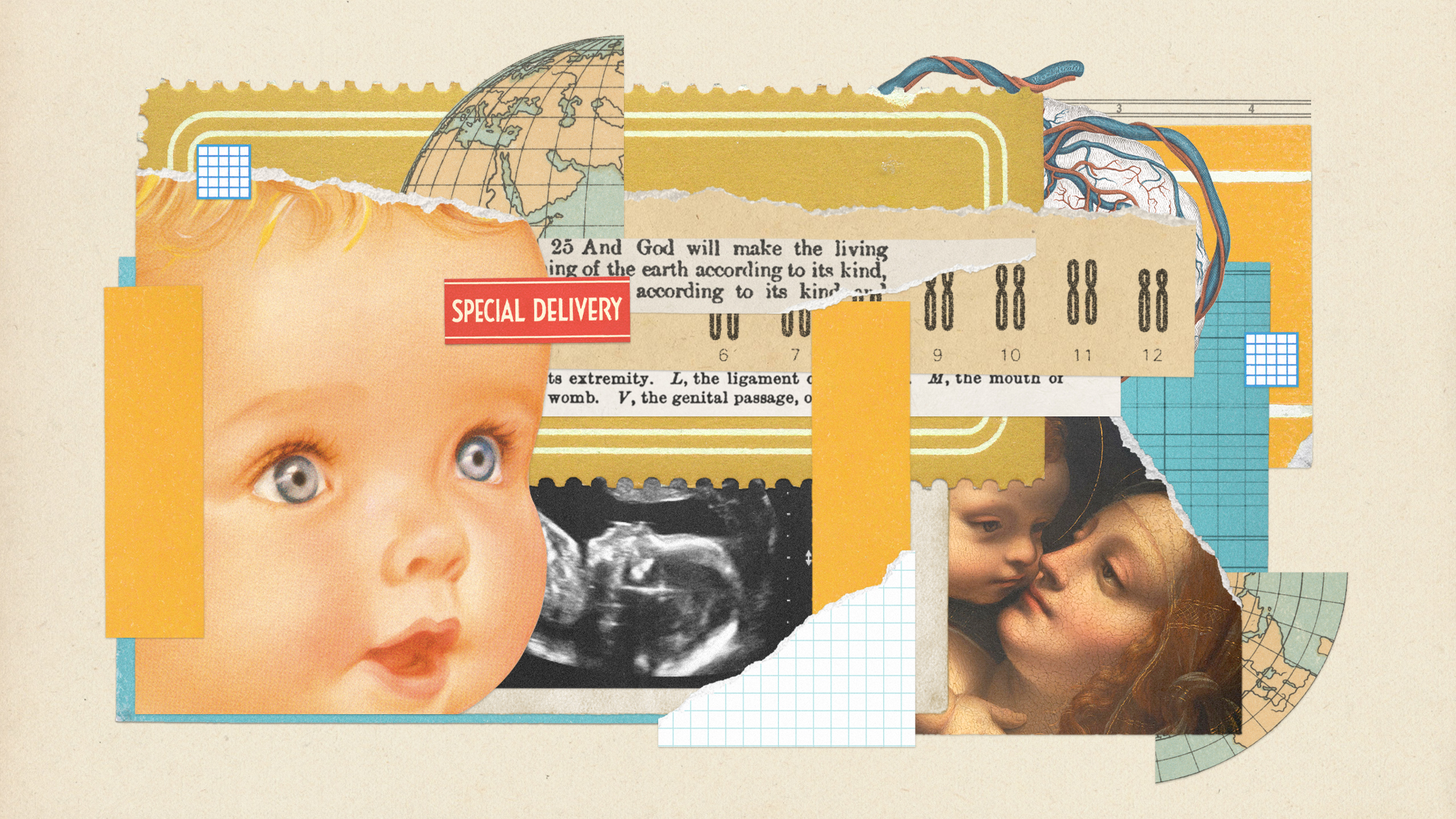Pronatalists stir controversy in era of falling birth rates
Are the movement's members creating an 'army of like-minded people?'


A free daily email with the biggest news stories of the day – and the best features from TheWeek.com
You are now subscribed
Your newsletter sign-up was successful
Malcolm and Simone Collins are on a mission to make babies. Lots of babies. "America's premier pronatalists" have three children — Octavian George, Torsten Savage and Titan Invictus are already part of the brood — with a little girl, Industry Americus, on the way, said The Guardian. The couple is part of a movement that includes 11-time father Elon Musk, who is worried about the world's declining birth rates and "focused on producing the maximum number of heirs." And these baby makers are getting the word out the old-fashioned way: by becoming influencers. "We don't mind being human clickbait – that's kind of our job," said Malcolm.
The Collinses might come off a bit eccentric, but they reflect wider fears. "If current forecasts are accurate, 2064 will be the first year in centuries when fewer babies are born than people die," said The Economist. Declining fertility in the United States, China, South Korea and Europe — and around the world — will eventually produce an economic disaster. "Sapped of workers and ideas, economic growth could collapse while public debt balloons." Smaller, aging populations "mean less growth and a more fractious world." Is the pronatalist movement onto something?
'Army of like-minded people'
Some observers see right-wing ideology underpinning the campaign. The project is "often about more than raising birth rates," Gaby Del Valle said at Politico. For many participants at last December's Natal Conference, concerns about declining fertility were accompanied by anger at immigration and wokeness. "The mission is to build an army of like-minded people" who will "reject a whole host of changes wrought by liberal democracy." The goal: to beat the left with babies. "The other side is not reproducing," said one speaker. "The antinatalists are sterilizing themselves."
The Week
Escape your echo chamber. Get the facts behind the news, plus analysis from multiple perspectives.

Sign up for The Week's Free Newsletters
From our morning news briefing to a weekly Good News Newsletter, get the best of The Week delivered directly to your inbox.
From our morning news briefing to a weekly Good News Newsletter, get the best of The Week delivered directly to your inbox.
This means the "Collins children aren't just blessings, but pawns in a social movement," Sarah Jones said at New York magazine. It is true that adherents to the pronatalist cause "can sound sensible" with their critiques of cultural and economic forces that make it more difficult to have families. But the effort to create a generation of conservative youngsters is doomed by one hard fact: Ideology is not baked into genetics, or even upbringing, no matter how much work parents put into it. "At some point, though, they develop their own minds."
'A demographic problem'
"Please don't write off baby-making as 'right wing,'" Timothy P. Carney said at The Washington Examiner. The challenges are real. "The U.S. birth rate is at its lowest level in recorded history," with fewer babies born each year since 2007. The result? There are now more Americans in their 60s than under the age of 10. Even if there are some oddballs and ideologues in the pronatalist movement, "we really do have a demographic problem."
This is why governments around the world are contemplating how to "make it easier for women to have children," said the BBC. Ideas include creating generous childcare allowances, increasing provisions for paid maternity leave and enacting new rules to aid moms and dads in the workplace. But even those well-intentioned efforts might not work. "While such policies might slow the decline, they rarely reverse it."
A free daily email with the biggest news stories of the day – and the best features from TheWeek.com
Joel Mathis is a writer with 30 years of newspaper and online journalism experience. His work also regularly appears in National Geographic and The Kansas City Star. His awards include best online commentary at the Online News Association and (twice) at the City and Regional Magazine Association.
